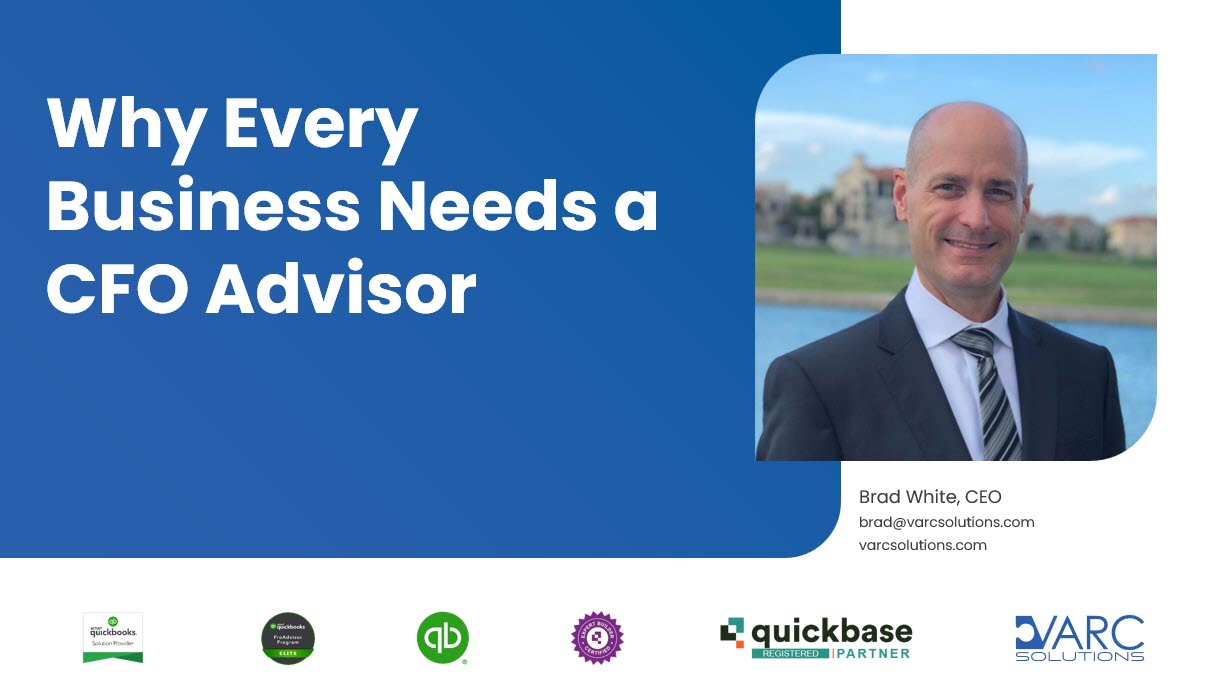Introduction
Running a small business is no easy task. Owners often find themselves wearing multiple hats—sales, operations, HR, and finance—without the expertise or time to manage each role effectively. This is where a CFO advisor comes in. In the recent podcast “Why Every Small Business Needs a CFO Advisor”, Brad White and Kevin Lacey explore the critical role a CFO advisor plays in guiding financial strategy, building sustainability, and unlocking growth opportunities for small businesses.
The Role of a CFO Advisor
Unlike a bookkeeper or tax preparer, a CFO advisor looks beyond the numbers. They focus on financial planning, cash flow management, risk mitigation, and long-term strategy. For small businesses, this expertise can be game-changing:
- Identifying hidden inefficiencies in operations.
- Helping navigate complex financing and investment decisions.
- Providing forward-looking forecasts instead of just historical reports.
A CFO advisor isn’t just for large corporations. Even businesses with modest revenue can benefit from having an expert steer their financial ship.
Common Financial Pitfalls for Small Businesses
Brad and Kevin highlight several mistakes small businesses often make when they lack CFO-level guidance:
- Poor Cash Flow Management – Owners underestimate the timing of expenses and revenue.
- Overleveraging Debt – Without a clear repayment plan, loans can quickly overwhelm.
- Lack of Financial Forecasting – Decisions are made based on gut feeling instead of data.
- Ignoring Key Performance Metrics – Many businesses don’t track profitability by product, service, or customer segment.
These oversights can lead to missed opportunities—or worse, business failure.
Why Outsourcing a CFO Makes Sense
Hiring a full-time CFO is expensive and often unrealistic for small businesses. The episode points to the growing trend of outsourced or fractional CFO services as a cost-effective solution. With this model, business owners gain access to:
- Expert insights at a fraction of the cost.
- Scalable support that grows with the business.
- Objective financial guidance, free from day-to-day operational bias.
This allows owners to focus on what they do best—running their business—while ensuring financial decisions are made with clarity and strategy.
Real-World Benefits
Brad and Kevin share stories of businesses that saw significant improvements after working with CFO advisors:
- A service-based company reduced expenses by 15% after analyzing spending patterns.
- A retail business improved profitability by shifting its pricing model based on CFO-led financial analysis.
- A startup secured the right financing structure that supported sustainable growth.
Having a CFO advisor can be the difference between simply surviving and truly thriving.
Conclusion
“Why Every Small Business Needs a CFO Advisor” delivers a powerful reminder that financial leadership isn’t optional—it’s essential. By leveraging the expertise of a CFO advisor, small business owners can gain clarity, confidence, and control over their financial future.
In today’s competitive landscape, every small business deserves CFO-level strategy, even if it comes in a fractional form. It’s not just about managing money—it’s about building a stronger, more sustainable business.




